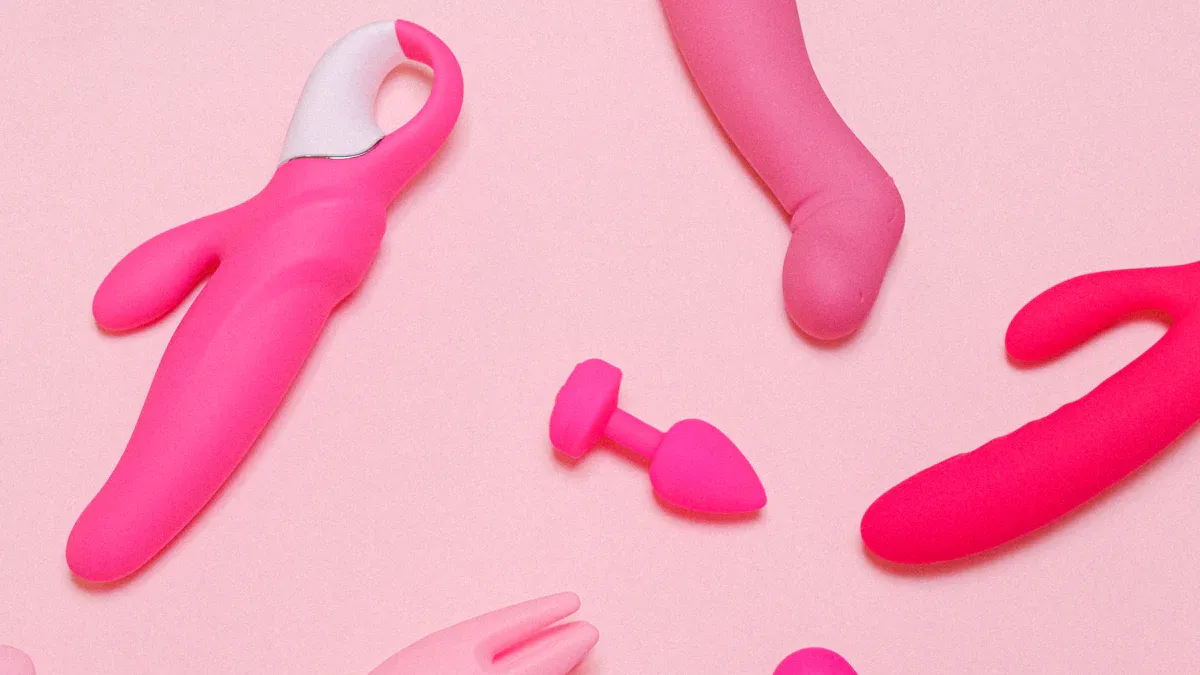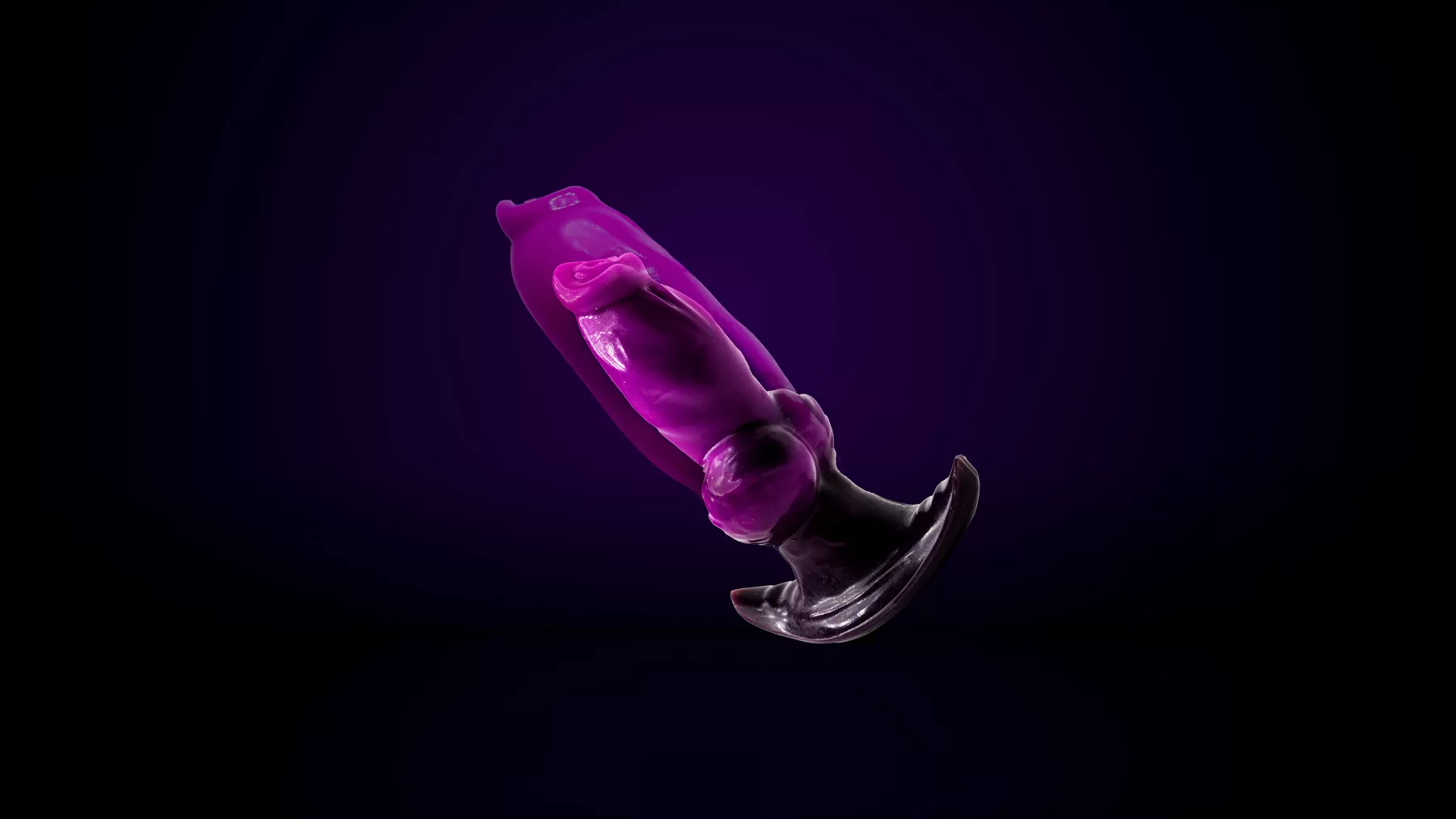Are PVC Dildos Safe to Use in 2025

You may ask if pvc dildos are safe in 2025. Experts say cheap PVC adult toys can be risky. Research from 2024 shows pvc dildos can let out phthalates and microplastics. These things can hurt your body. The material has tiny holes where bacteria can hide. This makes cleaning much harder. Over time, these dildos can change color or fall apart. This makes them even more risky. For better safety, pick body-safe choices like medical silicone, glass, or metal. Always look for safety labels when you buy adult toys, like Inflatable Dildos, Wolf Dildos, or a strapless dildo. Using body-safe dildos keeps you healthy and your toys clean.
What Are PVC Dildos?

Material and Additives
Many adult toys are made from PVC, which stands for polyvinyl chloride. PVC dildos are popular because they cost less and can be made into many shapes. To make them soft and bendy, companies add chemicals called plasticizers. The most common plasticizers are phthalates. These chemicals help the dildo bend, but they can also be bad for your health. Other chemicals sometimes found in PVC sex toys are trimethyltin chloride, toluene, phenol, carbon disulfide, and cadmium. These chemicals can hurt your body in different ways.
PVC dildos usually have:
Phthalates (plasticizers that make the toy soft)
Trimethyltin chloride (can cause problems with the brain and having babies)
Toluene (a solvent that can damage your nerves)
Phenol and cadmium (these are toxic)
Many toys made from jelly, rubber, or vinyl also have these unsafe chemicals.
Tip: If you want to avoid unsafe sex toy materials, do not pick jelly, rubber, PVC, or vinyl. Choose silicone, glass, or metal for a safer choice.
Why Safety Is Questioned
Doctors and safety groups worry about the safety of PVC sex toys for many reasons. First, phthalates in PVC dildos can come out when you use them, especially with lubricants. These chemicals can get into your body through your mouth or private parts. Studies show phthalates can mess with hormones, cause trouble having babies, lead to cancer, and cause asthma. Animal tests show that PVC can cause cancer and make it hard to have babies.
Reasons why PVC sex toys are not safe:
Phthalates can mess up your hormones.
PVC breaks down and lets out toxic things like lead and chlorine.
Many adult toys still use PVC and phthalates, even though some countries do not allow them in kids’ toys.
Lubricants can make phthalates leave the dildo faster, which is more risky.
Tiny pieces from the toy can get into your body and bring harmful chemicals.
Most adult toys do not have clear labels or safety warnings. Companies often call them “novelty items” so they do not have to follow strict rules. This means you might not know what is in your dildo or how to clean it the right way. Unlike silicone, which does not have holes and is easy to clean, PVC dildos can trap germs and chemicals inside. This makes them less safe for your health.
Health Risks of PVC
Chemical Exposure
When you use pvc dildos or other pvc sex toys, you may come into contact with chemicals called phthalates. These chemicals help make the dildo soft and flexible, but they do not stay locked inside the plastic. During use, phthalates can leak out and form an oily layer on the surface of the toy. This means your skin can absorb these chemicals, especially when you use the dildo with lubricants or for long periods.
Scientists have found that phthalates can disrupt your hormones. They may affect how your body grows and develops. Some studies show that children exposed to high levels of phthalates have lower IQ scores and more health problems. Animal research also links phthalates to problems with having babies and changes in brain chemicals. Even though experts have not proven every risk, they agree that you should try to avoid extra exposure to these chemicals.
PVC sex toys often contain other harmful chemicals like lead and cadmium. These can build up in your body over time and cause more health concerns. Many adult toys do not have clear labels, so you might not know what chemicals are inside. Choosing body-safe and non-toxic materials like silicone helps you avoid these risks.
Note: Some companies now make “phthalate-free” pvc sex toys, but not all of them are truly free from harmful chemicals. Always check for body-safe labels.
Porosity and Infection
PVC sex toys have tiny holes, or pores, in the material. These pores trap bacteria, viruses, and even body fluids. When you clean a pvc dildo, you cannot reach all the germs hiding inside. Even if you scrub with soap and water, some bacteria and toxins will stay in the toy. Using bleach or toy cleaners does not solve the problem because the pores protect the germs.
If you share a dildo or use it more than once, you risk spreading infections like HPV, herpes, chlamydia, or even HIV. The risk goes up if the toy causes small cuts or irritation on your skin. Doctors warn that porous toys like pvc dildos can lead to rashes, burns, and other skin problems. These issues make it easier for germs to get into your body.
Ways to lower infection risk:
Use a condom over the dildo every time.
Clean the toy right after use with warm water and mild soap.
Do not share your adult toys with others.
Choose body-safe, non-porous toys made from silicone, glass, or metal.
Degradation and Color Change
Over time, pvc sex toys can change color or start to break down. You might see the dildo turn yellow, become sticky, or develop cracks. These changes mean the material is falling apart and releasing more chemicals. When the toy degrades, it can let out microplastics and more phthalates. Your skin can absorb these particles, especially in sensitive areas.
Long-term use of degraded pvc dildos increases your exposure to harmful chemicals. These chemicals can disrupt your hormones and cause breathing problems like asthma. The risk grows each time you use a toy that is breaking down. Even if you clean the toy, the toxins and bacteria inside the pores will not go away.
Tip: If you notice any color change, stickiness, or cracks in your dildo, stop using it right away. Switch to a body-safe, non-toxic toy to protect your health.
The health risks of pvc sex toys are real and can affect anyone who uses them. You can lower your potential health risks by choosing body-safe materials and following good cleaning habits. Remember, adult toys should help you feel good, not put your health at risk.
Are “Phthalate-Free” PVC Dildos Safer?
Industry Claims
Many companies now say phthalate-free pvc dildos are safe. You might see boxes with “phthalate-free” or “body safe” on them. These words make it sound like you do not need to worry about bad chemicals. Some brands claim their pvc sex toys do not have phthalates. Phthalates are chemicals that can cause hormone problems and other health issues. The companies want you to think these dildos are safe for your body.
Note: If a dildo says “phthalate-free,” it does not mean it is totally safe. The label only talks about one kind of chemical. It does not promise the toy has no other harmful stuff.
Ongoing Risks
Even if a dildo says phthalate-free, there are still risks. New studies show some phthalate-free pvc sex toys have other chemicals that can mess up your hormones. These chemicals can cause trouble with having babies, cancer, and your immune system. Some toys might even have wrong labels, so you cannot always trust what they say.
Here is a table that shows the differences between standard PVC dildos and phthalate-free pvc dildos:
Aspect | Standard PVC Dildos | ‘Phthalate-Free’ PVC Dildos | Notes |
|---|---|---|---|
Chemical Leaching | Often contain phthalates, which can leach out and harm your health | May still contain other toxic chemicals like trimethyltin chloride, etc. | Both types may leach harmful substances; “phthalate-free” is not a guarantee |
Material Porosity | PVC is porous, making it hard to clean and easy for bacteria to hide | Same porous nature as standard PVC | Porosity leads to bacterial contamination risk in both types |
Bacterial Contamination | High risk due to porosity; bacteria can thrive and are hard to remove | Same risk due to porosity | Porous materials harbor bacteria regardless of phthalate content |
Recommended Alternatives | Nonporous materials like silicone, stainless steel, glass | Same recommendation applies | Nonporous materials reduce bacterial and chemical risks |
Both kinds of pvc sex toys have tiny holes in them. Bacteria, viruses, and fungi can hide in these holes. Cleaning does not get rid of all the germs, so you can still get sick. Experts say to stay away from porous toys, even if they look safe. Nonporous toys like silicone, glass, or metal are much better for your health.
Main risks of phthalate-free pvc dildos:
They might still have chemicals that mess up hormones
The porous material makes infection more likely
Safety labels might not be true
There are not many strong rules for sex toy safety
You should always pick a safe dildo made from nonporous materials. This keeps you healthier and lowers your chance of getting an infection.
Safer Alternatives to PVC Dildos

Body Safe Sex Toys
There are many safe options if you want to avoid PVC dildos. Body safe sex toys use materials that do not have pores. These materials do not let bacteria hide or chemicals leak out. Silicone sex toys are a great choice. They are hypoallergenic, non-toxic, and simple to clean. Glass sex toys made from borosilicate glass are also safe. They are strong and easy to keep clean. Stainless steel dildos are smooth and safe for your body. You can boil them to make sure they are clean. Some toys use sealed wood. This is safe if the coating does not break. These safer choices help you stay away from health problems linked to PVC.
Safe materials for sex toys are:
Medical-grade silicone
Borosilicate glass
Stainless steel
Sealed, body-safe wood
Toy makers now follow strict safety rules. They use certifications to show their toys do not have bad chemicals. You can trust toys with labels like CE, RoHS, or ISO. These labels mean the toy meets safety standards.
How to Choose Safe Materials
Always check what your dildo is made of before buying it. Look for body-safe labels on the package. Stay away from toys that smell like strong chemicals. Good brands tell you what is in their toys. They often have safety certificates from other companies. Pick non-porous, non-toxic materials like silicone, glass, or stainless steel. These are easy to wash and do not trap germs. Do not buy toys made from jelly, rubber, or PVC. These can hold bacteria and let out chemicals.
Tip: Wash your adult toys before and after you use them. This helps keep things clean. Look for cracks or color changes. Get a new toy if you see any damage.
Using Condoms with PVC Dildo
If you use a PVC dildo, you can lower your risk by using a condom. A condom helps block bacteria and makes cleaning easier. But condoms do not stop chemicals from leaking out of the dildo. You should still wash your toy with warm water and mild soap after each use. Keep your PVC dildo in a cool, dry place. Do not store it with other toys to stop damage. Good cleaning and using condoms can help, but using body safe sex toys is the best way to stay healthy.
You can get hurt if you use a PVC dildo. The biggest problems are from chemicals, the toy breaking down, and germs. Here is a simple table that shows the main dangers:
Risk Aspect | Description |
|---|---|
Material Degradation | PVC dildos let out microplastics when you use them |
Chemical Exposure | Phthalates and other bad stuff can hurt your hormones |
Infection Risk | The tiny holes in PVC can trap germs and viruses |

Doctors who know about sexual health say not to use PVC. They want you to pick dildos made from silicone, glass, or metal. These materials do not have holes and are much safer. Always pick a safe dildo, wash it well, and keep it in a clean place. You keep yourself healthy when you use a safe, body-friendly dildo.






